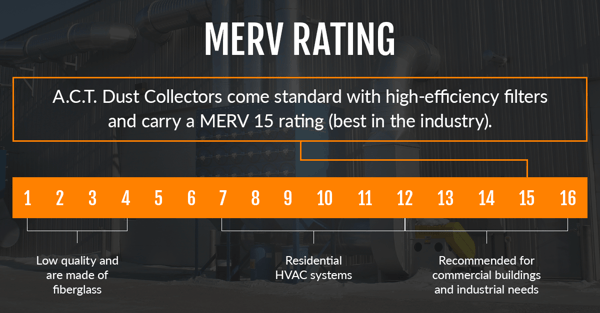
MERV Rating GraphFilters play a critical role in how well your dust collection system performs, and selecting the right one starts with understanding your application. Different environments produce different types of dust, and using the wrong filter can reduce efficiency, increase wear on your system, and even create safety risks. Matching the filter to your dust type and work conditions is essential for maintaining clean air and reliable system performance.
As you compare dust collector filters, you'll notice something called a MERV rating—short for Minimum Efficiency Reporting Value. This number indicates how well a filter captures particles of varying sizes, making it a key factor in both industrial and residential settings. In the sections below, we’ll explain what MERV means, why it matters, and how to choose the best filter for your facility’s specific needs.
What Is a MERV Rating?
Minimum Efficiency Reporting Value, or MERV, is a rating of the overall effectiveness of dust collector filters on a scale of 1 to 16. This rating represents how well your filter traps small particles that are circulating in both commercial and residential spaces.
The American Society of Heating, Refrigerating and Air-Conditioning Engineers (ASHRAE) established the MERV rating system in 1987. Since then, every filter has been assigned a MERV rating to denote the minimum guaranteed amount of particles it will trap.
Filter efficiency is tested through six measured dust loads of particulate in the size range of .3 to 10 microns, and the higher the MERV rating, the better the filter will perform. Filters with higher ratings are more effective at capturing fine particles, which is especially important in environments with hazardous or respirable dust. In certain high-risk applications, like pharmaceutical processing or sensitive military & defense manufacturing, even a MERV 16 filter may not be enough.
There is also a filter option beyond the highest MERV 16 score. High-efficiency particulate air filters, or HEPA, as defined by the U.S. Department of Energy, are types of pleated mechanical air filters that can remove up to 99.97% of particles in the .3-micron range. This means that at least 99.97% of dust, pollen, mold, bacteria, and any other airborne particles with a size of .3 microns are trapped at an extremely high efficiency rate.
What is the MERV Scale?
The MERV scale, or Minimum Efficiency Reporting Value, is a standardized system developed by ASHRAE to rate the effectiveness of air filters. It ranges from MERV 1 to MERV 16 for most commercial and industrial filters, with higher numbers indicating better filtration of smaller particles. Understanding where your filter falls on this scale helps ensure you're using a product that meets the air quality demands of your specific application.
Filters rated MERV 8 to MERV 11 are typically used for general commercial or light industrial use, while MERV 13 to MERV 16 are more effective at capturing fine particulates like dust, smoke, and aerosols. For operations that generate hazardous dust or require cleanroom-level protection, high-efficiency options like MERV 15 or HEPA may be recommended. Choosing the right rating balances efficiency, airflow, and maintenance frequency to match your process needs.
Why Is the MERV Rating Important?
It’s ideal for both manufacturers and consumers alike to create and utilize filters with the highest possible MERV rating in order to meet specific needs and trap sub-micron particulates effectively. A higher MERV rating equates to finer filtration, meaning fewer dust particles and other airborne contaminants can pass through the filter. This is especially important in environments where employee health, product purity, or regulatory compliance is a top priority.
It works like this: The ASHRAE 52.2 test procedure returns the minimum efficiency value for the tested filter. In actual use, once the filters have been coated with particulate, the filter efficiency would be much higher than that reported on the test. This phenomenon, known as "filter seasoning," helps enhance real-world performance over time.
The MERV Rating for Your Home
To get a basic understanding of how you’d select a filter for your home’s HVAC system, it’s important to know that lower-quality filters, in the one to four MERV range, are typically made of fiberglass. Most residential HVAC systems will use synthetic air filters with MERV ratings from 7 to 12.
Why not higher? While for home use you certainly want your filters to trap particles like bacteria, pollen, allergens, and dander, you also want to make sure that your filter is circulating enough clean air in return. Too much particle trapping can reduce air circulation and quality, and can even make your HVAC work harder than it needs to. This can result in higher energy bills, costly repairs for an overworked system, and inefficient use of your filters.
To maintain optimal indoor air quality, it’s important to check your filters regularly and replace them according to the manufacturer’s schedule. A clean MERV-rated filter ensures your home stays free of allergens and pollutants without compromising your HVAC system’s efficiency. Balancing filter strength with airflow keeps your indoor environment healthy, comfortable, and cost-effective.
The MERV Rating for Commercial Use
On the flip side, a higher MERV filter rating of 13-16 is recommended for commercial buildings and industrial needs. In fact, ASHRAE recommends MERV 13 air filtration as a minimum rating for commercial buildings. While it isn’t required, it’s important to check in with your filter supplier to ensure you’re using the most effective filter for your industry’s needs.
Starting with a MERV 13 filter can aid in cleaning and circulating air for heavy-output industries like woodworking, grinding, and welding. In today’s day and age, they can even remove COVID-19 particulates, making the work environment safer for all who enter the facility.
When choosing a commercial air filter, you can never be too safe. Clean air in the workplace keeps employees healthy and, in turn, happy. Contact A.C.T. today to request a quote and get expert guidance on selecting the right filter for your facility.
MERV Ratings and Filter Misconception
One common misconception is that a higher MERV rating is always better, but that’s not necessarily true for every application. While MERV 15 and 16 filters offer exceptional particle capture, they may restrict airflow in systems not designed to handle the increased resistance. This can lead to reduced system efficiency, overheating, or even premature equipment failure if the wrong filter is used.
Another frequent misunderstanding is that filters only need to be changed when visibly dirty. In reality, waiting too long to replace filters—even high-rated ones—can cause dust buildup, pressure drops, and reduced air quality. The key is to match the MERV rating to your system’s capacity and your application’s needs, then follow a routine maintenance schedule to prevent performance issues.
FAQs about MERV ratings
What does "MERV rating" mean?
It stands for Minimum Efficiency Reporting Value and measures a filter’s ability to trap particles. Higher ratings mean better filtration.
What MERV rating should I use in an industrial setting?
MERV 13 to 15 is ideal for most industrial environments. Choose based on your dust type and air quality needs.
Can using a filter with too high of a MERV rating cause problems?
Yes, it can restrict airflow and strain your system. Always match the filter to your equipment.
How often should MERV filters be replaced?
Every 3 to 6 months, depending on dust load and use. Inspect regularly for best performance.
Are MERV filters the same as HEPA filters?
No, HEPA filters exceed MERV ratings. They’re used for ultra-fine particle capture in specialized settings.
MAximize your Air Filtration
Routine maintenance is essential to keep your MERV-rated filters operating at peak performance. Over time, filters can become clogged with dust and debris, reducing airflow and efficiency. That’s why it's important to inspect filters regularly and follow the recommended replacement schedule based on your application and dust load.
At A.C.T. Dust Collectors, our dust collection systems come standard with the high-efficiency Nano-Elite OEM replacement filters and carry a MERV 15 rating (one of the best in the industry) for effective collection of extremely fine dust, smoke, and fumes, removing 99.9% of the particulate from the air stream. The cleaned air is then directed to the location of your choice, either returned to the facility or exhausted to the environment.
Remember, all air filters, whether residential or commercial, need periodic cleaning and replacement in order to function properly. Depending on how much use you’re getting out of your filter and the application you’re using it for, you may need to replace or clean it more frequently. Our experts can guide you in the right direction.
Turn to the expert team at A.C.T. for guidance on MERV ratings, filter types, and maintenance strategies that keep your system running efficiently. We’re here to help you make informed decisions that improve air quality, meet compliance standards, and protect your workforce. Interested in learning more about air filter MERV ratings? Contact us today or request a quote.


























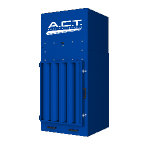
%20Collectors%20Image.png?width=143&height=143&name=ADC%20(Ambient)%20Collectors%20Image.png)
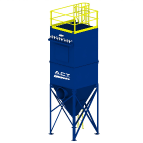

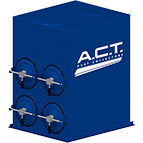
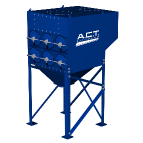
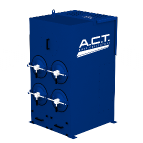


















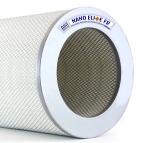


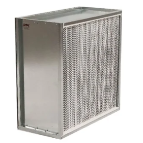

.png?width=240&height=91&name=ACT%20Dust%20Collectors%20Logo%20Solid%20White%202020%20(1).png)
.png?width=148&height=149&name=usa-manufactured-dust-collectors%20(1).png)